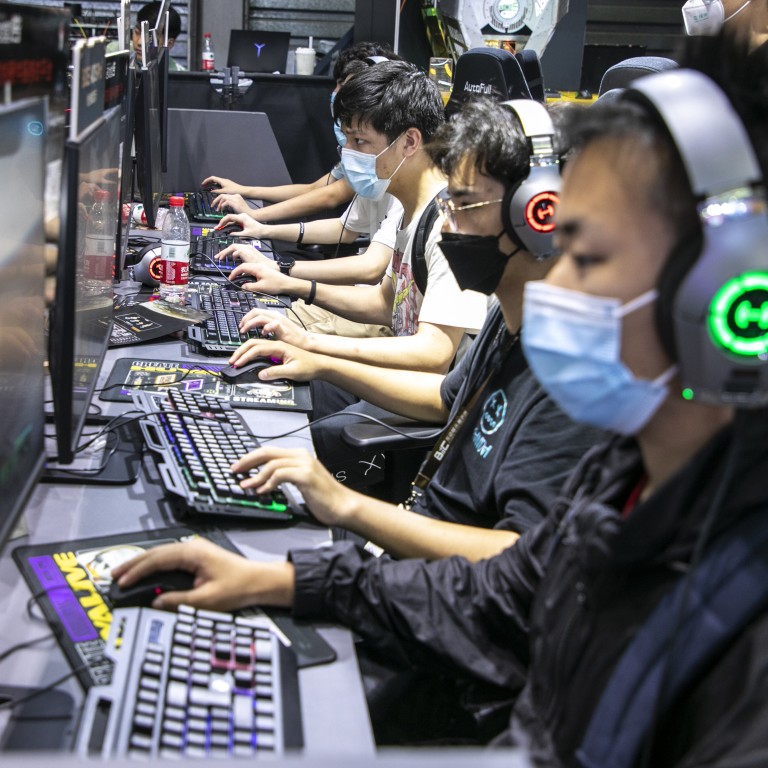
China gaming crackdown: approvals resume but no happy ever after for foreign studios under strict new regulatory regime
- Although some big-name foreign game studios are still waiting for a breakthrough in China, many have already thrown in the towel
- Despite an alluring total size of US$46 billion in revenues in 2021, China’s video games market is no longer an easy game
China has resumed video game licence approvals, but the country’s strict new regulatory environment and content censorship means that the world’s largest gaming market will remain an inhospitable place for foreign developers, according to industry watchers.
Just as Hollywood blockbusters and hot Netflix productions struggle to penetrate China’s market because of censorship issues, foreign game studios are finding it harder to make money from the country’s gamers as regulatory barriers and ideological resistance rises.
Although the National Press and Publication Administration (NPPA) this week reopened approvals for domestic games after a freeze of nearly nine months, the door for imported games remains shut.
The NPPA approved 76 imported games in 2021 before a suspension was announced. But even this was fewer than the 97 approved in 2020 and the 180 approved in 2019. It is still not known whether the regulator will release a list of approved foreign titles for 2022.
Video gaming industry gains extra life with end of licensing freeze but risks remain
“There’s no doubt that both the licensing process and content review are getting stricter, so it’s more difficult for overseas studios to enter the Chinese market,” said Zhang Yi, chief analyst with Guangzhou-based iiMedia Research.
Nexon is believed to be still working with local distributor and video gaming giant Tencent Holdings to launch the mobile game, but as of now, nobody knows when or whether it will receive approval.
Roblox’s Chinese version, LuoBuLeSi, which is published and operated by Tencent Holdings, closed its server last December, while the global version of popular gaming platform Steam became unavailable on the mainland the same month. Steam is operated by Bellevue, Washington-based Valve Corp.
Despite an alluring total size of US$46 billion in revenue in 2021, China's vast video gaming market is no longer an easy game, according to analysts.
“Both domestic and overseas gaming firms want to import successful titles into China,” said Chenyu Cui, a senior research analyst for video games at London-based consultancy Omedia. “But under current circumstances, no one knows if their game will be approved.”
‘Two sessions’ delegates propose more gaming restrictions for China
Beijing’s tightened control of imported gaming content is part of a broader campaign to shield domestic audiences from foreign influence, and the gaming crackdown received more urgency after President Xi Jinping personally highlighted the issue of gaming addiction among the nation’s youth and the impact on health.
Currently, players under 18 are restricted to playing video games between 8pm and 9pm on Fridays, Saturdays, Sundays and statutory public holidays only. That has been quite a reversal for a country previously famed for its passionate gamers.
In addition, the geopolitical sensitivity of video gaming should not be ignored.
South Korea angered China in 2016 by deploying the US-led missile-defence system THAAD. As part of its retaliation, China stopped importing Korean entertainment programmes and games. As such, no Korean video gaming companies were allowed to launch new titles in the country between March 2017 to 2020, despite the country's own vibrant gaming industry.
China was previously the biggest export market for Korean video games, accounting for 60.5 per cent of export revenue from Korea in 2017, according to Daniel Ahmad, a senior analyst at Niko Partners.
But that number shrank by almost half to only 35.3 per cent in 2020, narrowing the gap with other large markets such as Southeast Asia, according to data from the Korea Creative Content Agency (KOCCA), a government agency that oversees and coordinates the promotion of the Korean content industry.
“As China has gradually reduced its imports of overseas games, the competition to enter the Chinese market has become more fierce,” said KOCCA in its report.
Video game journal suspends publication amid China’s gaming crackdown
Meanwhile, the traditional route for foreign games to enter the China market via partnerships with local companies has become narrower because Chinese partners have no way of guaranteeing a green light from regulators.
A former executive at a big Chinese gaming company, who declined to be named as he is not authorised to speak with the media, said the firm’s new collaborations with overseas partners are mostly stuck in the early stages because the company cannot provide a schedule for when, or even whether, the game will be able to run and generate revenue in China.
The grey channels for Chinese players to access overseas gaming servers are also disappearing. Tencent said this week it will shut down a service that was used by some Chinese gamers to access unapproved foreign games on May 31. The service, referred to as a ‘game booster’, will only support games operating in China from this date forward.
You Haokun, a senior analyst at research firm LeadLeo, said a trend will emerge whereby more foreign companies scale back their China ambitions even though the market remains tempting.
The industry’s gross sales revenue grew at a meagre rate of 6.4 per cent in 2021, down from growth of 20.7 per cent in 2020, according to data from the Game Publishing Committee, which is under the state-backed China Audio-Video and Digital Publishing Association.
Meanwhile, the number of gamers in China rose by just 0.22 per cent to 66.6 million in 2021, compared with a 3.7 per cent growth in 2020, according to the same report.

